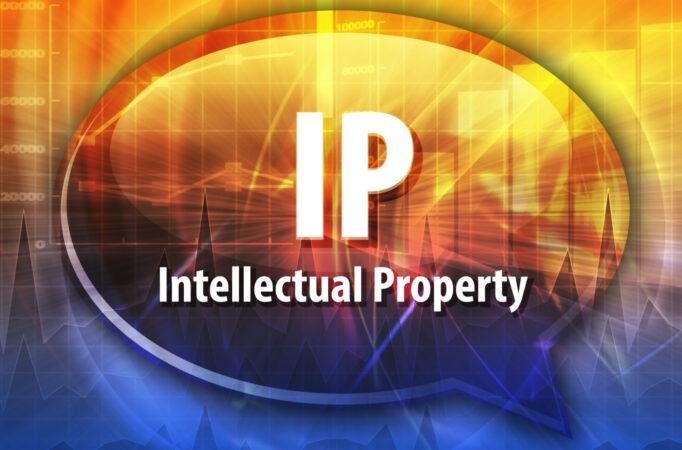Intellectual Property Litigation, Protection, Prosecution and AI Legal Matters
Your Ink, Your Likeness; Tattoos and Copyrights
Hayden v. 2K Games Inc, U.S. District Court for the Northern District of Ohio, No. 1:17-cv-02635.
Just a few weeks ago, a federal jury in Ohio sided with makers of the popular video game series “NBA2K”, over its use of tattoos inked on LeBron James by a Cleveland tattoo artist, James Hayden.
In 2017, Hayden, who’s inked other superstars like Shaquille O’Neal and Kyrie Irving, brought copyright infringement action against a video game developer, Take-Two Interactive Software, Inc. (“Take-Two”), and a video game seller, 2K Games, Inc. (“2K Games”), alleging unauthorized use of his registered tattoos, which were inked on professional basketball players, through players' likenesses in an interactive video game “NBA2K.”
In his lawsuit, Hayden alleged that his artwork – the tattoos – were copied every time the games were played, and that the sales of the games have generated over $4.2 billion in revenue. There was no question that the realistic avatars of the NBA players in the games bear the physical features and likeness of each player – including their tattoos. Take-Two and 2K Games admit that the accused games “include realistic depictions of NBA players including the tattoos that they have in real life.” The court denied summary judgment, and the case proceeded to trial.
At issue during the trial were two of James’ tattoos - one of James’ mother’s name, Gloria, on one shoulder, and another of five stars on his other shoulder. Hayden inked them both on James in 2007. Hayden subsequently registered those tattoos with the U.S. Copyright Office, with an effective registration date of September 6, 2016. The trial was over the use of the tattoos in the video games NBA2K16 through NBA2K20 and a version of the game for user’s phones.
During the five day trial, attorneys portrayed the case as one that pitted the rights of Hayden as an artist to decide how and where his art is recreated, and James’ ability to license his likeness after getting permanently inked.
James, who licensed his likeness to Take-Two through the NBA Players’ Association union, was not a defendant in the lawsuit, and he was not required to testify in person. However, his deposition was played for the jury, in which he said he never knew he had to get permission from his tattoo artists to license his likeness. “Nobody should have rights over what I can do with my body,” James said in the deposition.
During closing argument, the defense suggested that the case’s outcome had massive implications. They argued if the jury found in favor of Hayden, it would be restricting James’ ability to license is likeness in commercials, movies, video games and merchandise. The defense echoed James’ deposition testimony, stating that “ “No one should have veto power over how someone else chooses to show their body.”
On the other side, Hayden’s attorney argued that the case was straightforward copyright infringement – the use of another’s art in full without approval. Hayden’s attorney further criticized the defense in making the case about James. He argued that the case was David vs Goliath, and questioned why the defense fought so hard against Hayden, a small business owner, when they paid millions for other licensing rights, including for music played during the game. The company made $3.1 billion in profits for the six versions of the game.
After 90 minutes of deliberation, the jury sided with defendants, finding that they did not infringe on Hayden’s copyrights when they replicated two tattoos on the video-game avatar of the basketball superstar. Rather, the jury found that defendants had an implied license to depict the tattoos based on its agreement to use James’ likeness in the games. Or, more simply stated: the tattoos became part of James’ likeness after Hayden permanently inked his body. The takeaway? Your ink, your likeness. The case is Hayden v. 2K Games Inc, U.S. District Court for the Northern District of Ohio, No. 1:17-cv-02635.
About Us
The IP, Technology, AI and Trade Secret attorneys at Houston Harbaugh, P.C., have extensive courtroom, jury and non-jury trial and tribunal experience representing industrial, financial, individual and business clients in IP and AI counseling, infringement litigation, trade secret protection and misappropriation litigation, and the overall creation and protection of intellectual property rights in an AI driven world. Our team combines extensive litigation experience with comprehensive knowledge of rapidly evolving AI and technology landscapes. From our law office in Pittsburgh, we serve a diverse portfolio of clients across Pennsylvania and other jurisdictions, providing strategic counsel in patent disputes, trade secret protection, IP portfolio development, and AI-related intellectual property matters. Our Trade Secret Law Practice is federally trademark identified by DTSALaw®. We practice before the United States Patent and Trademark Office (USPTO) and we and our partners and affiliates apply for and prosecute applications for patents, trademarks and copyrights. Whether navigating AI implementation challenges, defending against infringement claims, or developing comprehensive IP strategies for emerging technologies, our team provides sophisticated representation for industrial leaders, technology companies, financial institutions, and innovative businesses in Pennsylvania and beyond.
IP section chair Henry Sneath, in addition to his litigation practice, is currently serving as a Special Master in the United States District Court for the Western District of Pennsylvania in complex patent litigation by appointment of the court. Pittsburgh, Pennsylvania Intellectual Property Lawyers | Infringement Litigation | Attorneys | Patent, Trademark, Copyright | DTSALaw® | AI | Artificial Intelligence

Henry M. Sneath - Practice Chair
Co-Chair of Houston Harbaugh’s Litigation Practice, and Chair of its Intellectual Property Practice, Henry Sneath is a trial attorney, mediator, arbitrator and Federal Court Approved Mediation Neutral and Special Master with extensive federal and state court trial experience in cases involving commercial disputes, breach of contract litigation, intellectual property matters, patent, trademark and copyright infringement, trade secret misappropriation, DTSA claims, cyber security and data breach prevention, mitigation and litigation, probate trusts and estates litigation, construction claims, eminent domain, professional negligence lawsuits, pharmaceutical, products liability and catastrophic injury litigation, insurance coverage, and insurance bad faith claims. He is currently serving as both lead trial counsel and local co-trial counsel in complex business and breach of contract litigation, patent infringement, trademark infringement and Lanham Act claims, products liability and catastrophic injury matters, and in matters related to cybersecurity, probate trusts and estates, employment, trade secrets, federal Defend Trade Secrets Act (DTSA) and restrictive covenant claims. Pittsburgh, Pennsylvania Business Litigation and Intellectual Property Lawyer. DTSALaw® PSMNLaw® PSMN®

